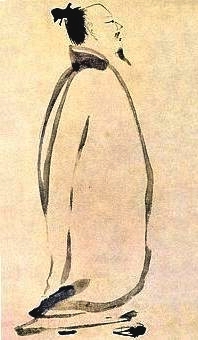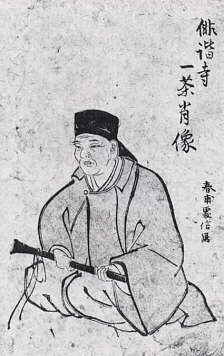In honor of National Poem in Your Pocket Day, we’d like to share some little poems from Japan, China and Italy. Take one with you in your pocket for practice!
JAPAN
俳句 Haiku is a very short form of Japanese poetry. Haiku is composed of 17 morae (which equal to 17 kana characters) in three phrases; the first phrase consists of 5 morae, the second phrase consists of 7 morae, and the third phrase consists of 5 morae.
松尾芭蕉 Basho Matsuo (1644 - 1694) and 小林一茶 Issa Kobayashi (1763 - 1827) are two of the most famous haiku poets in the history of Japan.
Basho Matsuo was a well-known poet in 江戸 Edo (the city which is now called Tokyo), but he renounced his urban life and decided to take a journey around the country to gain inspiration for his poetry. He took a 150-day trip on foot through the northeastern areas of 本州 Honshu with his student 河合曾良 Sora Kawai. The haiku poems he wrote during his journey was published in 奥の細道 Oku no hosomichi “The Narrow Road to the Interior” in 1694. This is one of the most famous book of poems in Japan.
This is one of his poems from “The Narrow Road to the Interior”:
夏草や 兵どもが 夢の跡
Natsukusa ya Tsuwamonodomo ga Yume no ato
The summer grasses
Of brave soldiers’ dreams
The aftermath
(Translation by Donald Keene)
Issa Kobayashi had some tragedies in his life. Early in his life, he lost his mother. In his mid-life, he lost his four children and his first wife. Later in his life, he lost his home from fire. Despite the tragic complexity of his life, his poetry has a childlike simplicity. In his haiku, he often talks about tiny creatures such as snails, frogs, fireflies, mosquitoes, fleas, and crickets. Issa is regarded as one of the most endearing poets in Japan.
The following is one of his famous haiku poems:
痩せ蛙 負けるな一茶 これにあり
Yasegaeru Makeru na Issa Kore ni ari
Scrawny frog,
fight on! Issa
to the rescue
(Translation by Lewis Mackenzie)
CHINA
 李白lǐ bái,a.k.a. Poet Immortal (诗仙,shī xiān )or Wine Immortal (酒仙, jiǔ xiān) is one of the greatest Chinese poets of all time. He lived during the Tang Dynasty. His work is romantic,spontaneous,effortless, full of fantastic imagery and a sense of freedom. His education started when he was just 5 years old. He read extensively, including various astrological and metaphysical materials. He was also very good at martial arts.
李白lǐ bái,a.k.a. Poet Immortal (诗仙,shī xiān )or Wine Immortal (酒仙, jiǔ xiān) is one of the greatest Chinese poets of all time. He lived during the Tang Dynasty. His work is romantic,spontaneous,effortless, full of fantastic imagery and a sense of freedom. His education started when he was just 5 years old. He read extensively, including various astrological and metaphysical materials. He was also very good at martial arts.
Throughout his life, 李白lǐ bái wrote a lot of poetry. There are more than nine hundred poems of his left. He mastered various styles of classical Chinese poetry and created many masterpieces in many of them. His poetry is greatly influential not only in his own time but also after his lifetime-even today.
Here is a short poem of his called Amusing Myself, translated on http://chinese-poems.com/lb.html into English (see the website for the Chinese):
Facing my wine, I did not see the dusk,
Falling blossoms have filled the folds of my clothes.
Drunk, I rise and approach the moon in the stream,
Birds are far off, people too are few.
ITALY
A very famous and internationally celebrated Italian poet, Giuseppe Ungaretti, possibly wrote the shortest poem ever. So it is pocket size by definition.
M’illumino
d’immenso
I illuminate (myself)
with immensity
That is it. Now, fold it in your pocket and walk.

